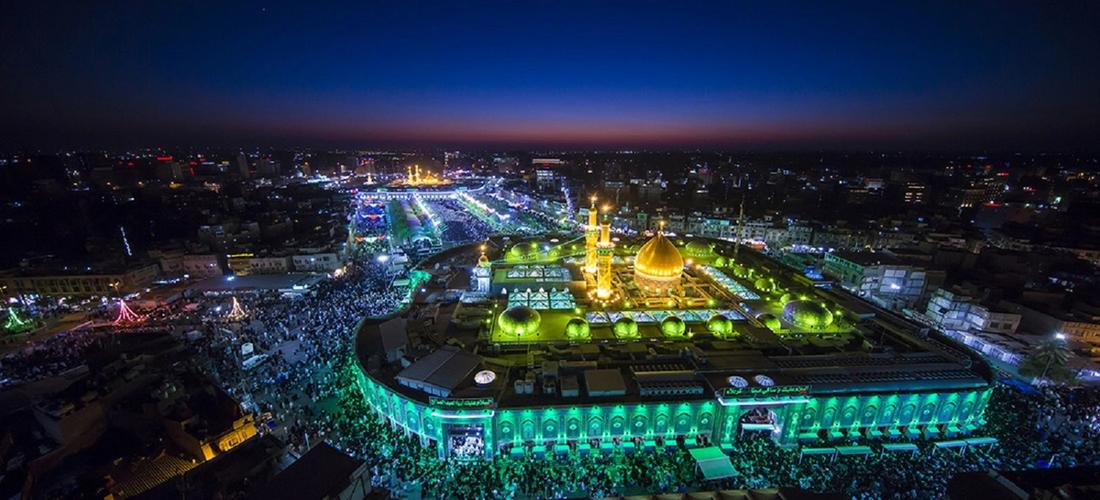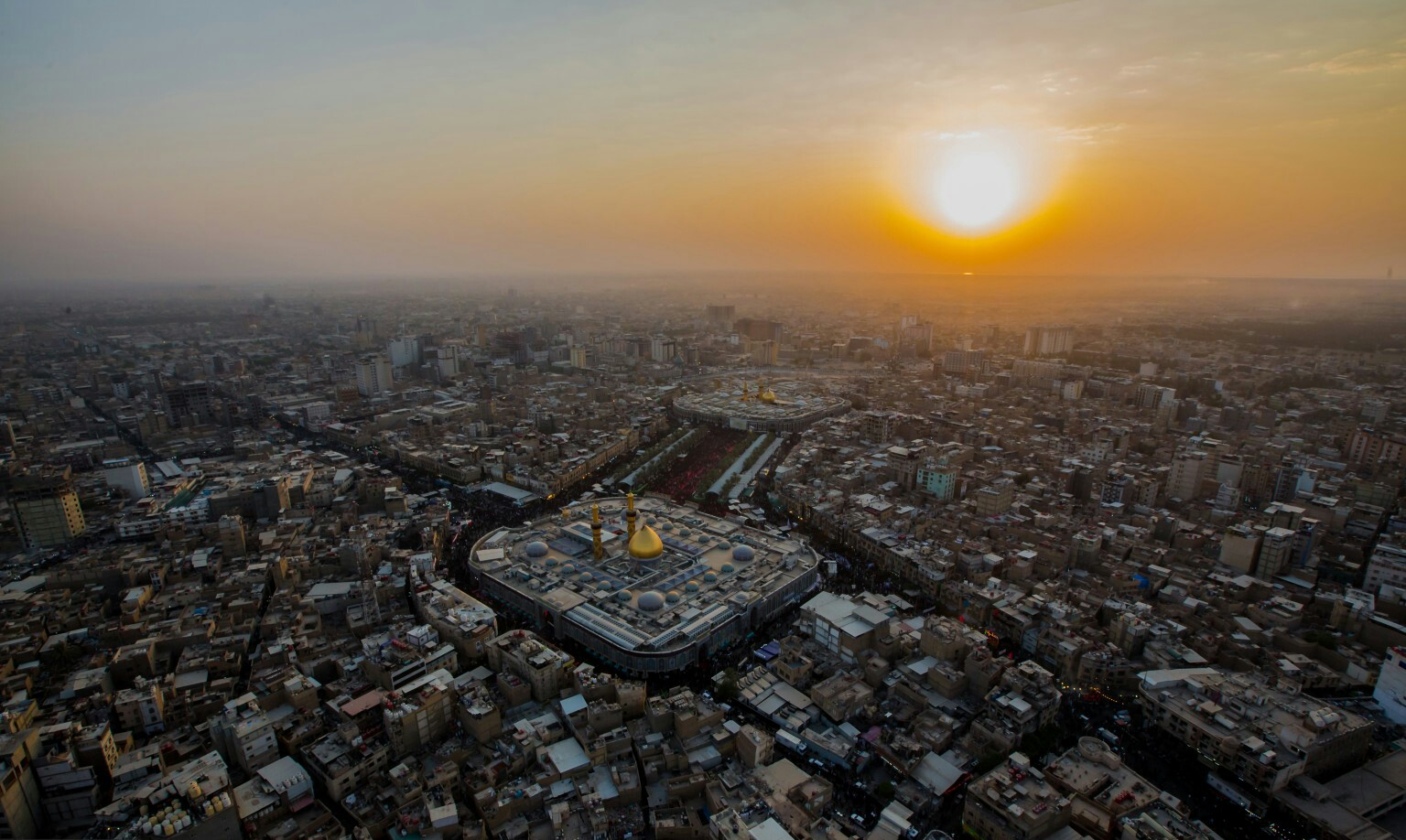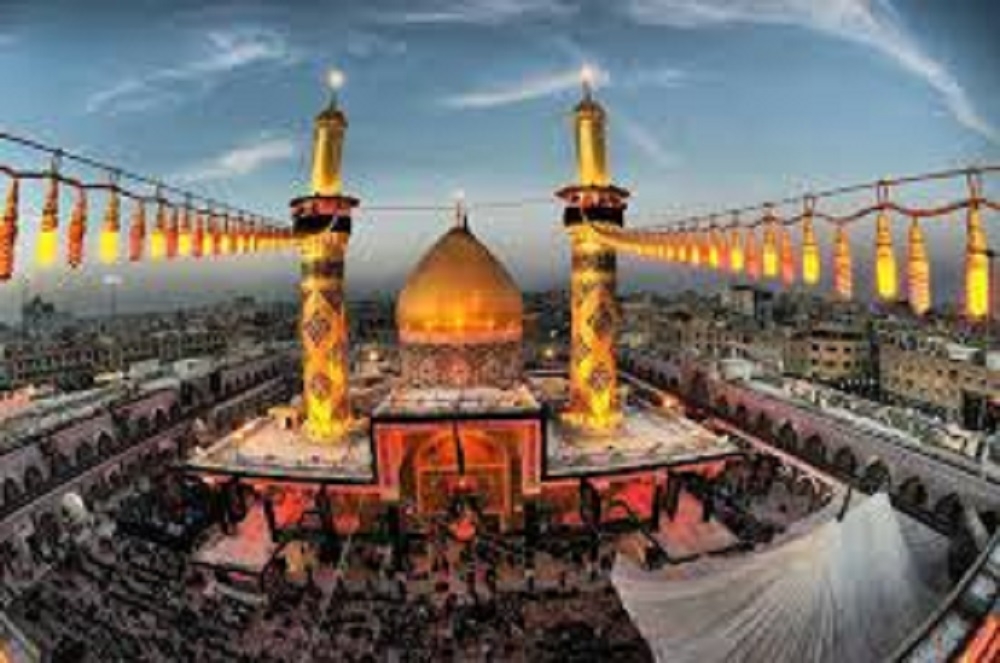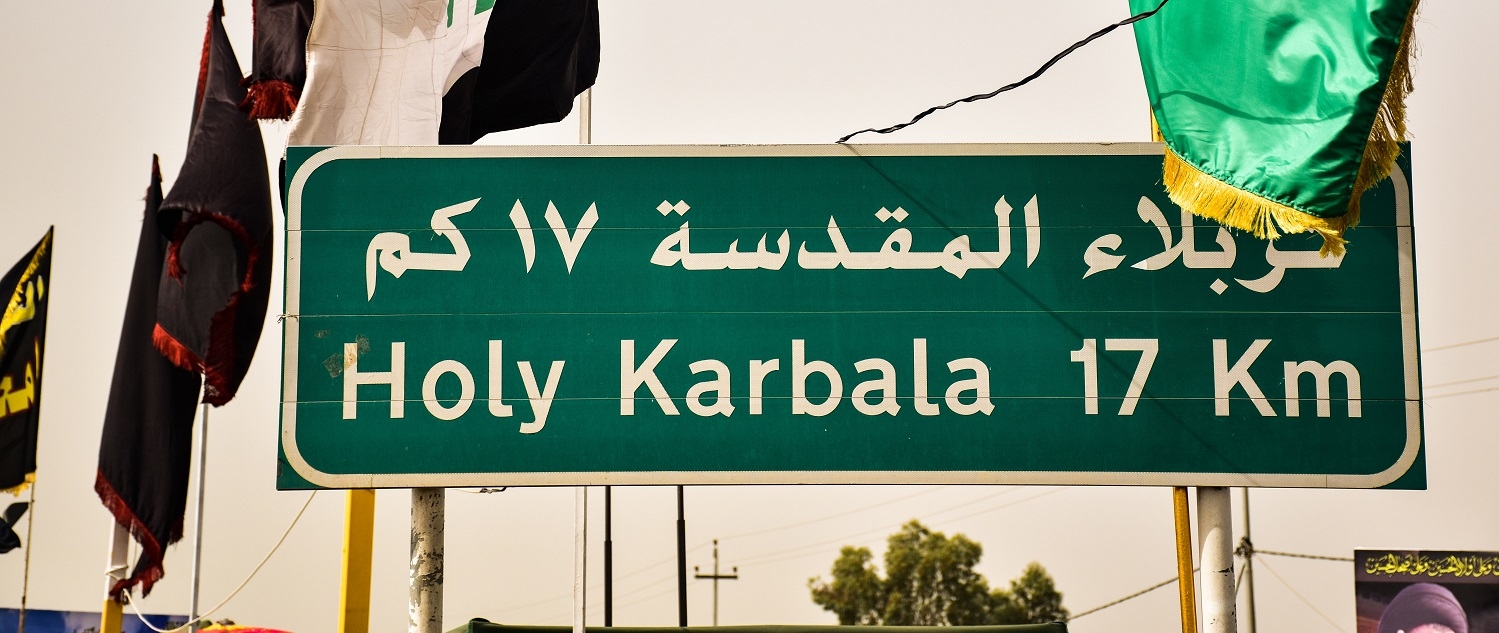What is the Significance of Muharram and Ashura? An FAQ from a Shi'a Perspective
Faith
|
Jul 28, 2023
|
8 MIN READ

Karbala at night; image source: Unsplash
By Sumaira Akbarzada
The Islamic month of Muharram has begun and Ashura, which falls on the 10th of Muharram is upon us. Many of us have learned about the historical events that have happened on this day and this month, focusing on the martyrdom of Imam Hussain (as) (the grandson of the Prophet Muhammad (saw) in the Battle of Karbala. It is a day (and month) of significance to all Muslims, Sunni and Shi’a.
But for Shi’a Muslims, Ashura and Muharram hold a special and elevated importance with a variety of ways in which they observe and remember the events of Ashura and the martyrdom of Imam Hussain (as) and his followers. Every year when the month of Muharram and the day of Ashura comes, there are many misconceptions and questions around what Ashura means to Shi’a Muslims and how they observe and remember these religious events.
So, we asked Sumaira Akbarzada, who penned a piece for Haute Hijab about what the bravery of Zainab (as) (the sister of Imam Hussain) after the battle of Karbala means to her, to answer a set of frequently asked questions around Muharram and Ashura from a Shi’a perspective, so that we all may better understand the significance around this month for Shi’a Muslims. Sumaira was raised in an Afghan Shi’a family, received her master’s degree from Yale and is studying for her doctorate in health policy.
It is important to note that there will be differences between how Sunni and Shi’a Muslims (and Muslims from different madhabs, or schools of thought) observe this month and day. This FAQ looks to explain common questions (many which came from our HH community) around Muharram and Ashura about how Shi’a Muslims feel about and observe this day and month from a Shi’a perspective.

Sumaira Akbarzada
What is the significance of the Battle of Karbala for Shi’as?
Imam Hussain (as) refused to pledge allegiance to Yazid, an unjust ruler under whose rule pious Muslims were persecuted and whose character was completely unIslamic. He rose up against Yazid to protect the religion of Islam as revealed to his grandfather, the Prophet Muhammad (saw), and to prevent falsehood from corrupting the truth.
In the Imam's own words, "I swear by God, I did not rise against the tyrannical rule of Bani Umayyah out of selfishness or with the aim of oppression or corruption. My revolt is only aimed at reviving the religion of my grandfather, the holy Prophet Muhammad (saw) and the traditions of my father Ali ibn-Abi Talib (as), to enjoin good and forbid evil. So, whoever accepts me by accepting the truth, surely God rewards him for supporting the truth. And whoever rejects me, I will be patient until God judges between me and these people justly. Surely, He Almighty is the Best Judge of the judges." [Biharul Anwar Vol. 44," P. 329]
What led up to the Battle of Karbala?
Imam Hussian (as) left Madina for Iraq where the people of Kufa had invited him, so that they could lend him their support. On the way to Kufa, his small group of 72 companions and family members were stopped by the army of Yazid that was sent by Ibn Ziyad, Yazid's governor of Kufa. They were prevented from accessing food or the water for three days.
On Ashura (10th of Muharram), the men of the army of Imam Hussain (as) were all martyred by the army of Yazid with the exception of his son, Zayn al-Abidin (as), who was sick and taken prisoner. They did not even spare Imam Hussain's (as) six month old son Ali Asghar who was killed with an arrow piercing his delicate neck. Imam Hussain (as) was martyred at the end. After his death, his body was trampled under the hoofs of the army of Yazid and his decapitated head was raised on a spear for all to see.
After he was martyred, the army of Yazid looted and burnt the tents of the granddaughters of the Prophet (saw). The women and children were taken prisoner and marched without their hijab first to the court of ibn Ziyad and then brought to the court of Yazid in Damascus. Bear in mind that these are the women of the household of the Prophet (saw). They have never been seen by any men outside their family and now they were brought as captives of war to the palace of Yazid where they were held as prisoners.
Do Shi’as mourn during the entire month of Muharram and if so, why?

Modern-day Karbala; image source: Pexels.
Yes, Muharram is not only a sacred month in the Islamic calendar but also the source of Islam’s revival. It is specially respected by Shi’a Muslims across the world because it reminds them of the sacrifices made by the family of the Prophet (saw) to safeguard and preserve Islamic values. The Prophet’s grandson, Imam Hussain (as) and his few companions sacrificed their lives in Karbala to revive Islam.
The concept of mourning during Muharram, as said by Shi’a religious scholars (known as Maraji), is to respect the symbols of religion and remember the suffering of Imam Hussain (as), his companions, and his uprising to defend Islam and prevent the destruction of the religion by the Bani Umayyad dynasty. For many Shi’as, it’s also a very spiritual month, where we refrain from listening to music, watching movies and focus solely on Muharram activities.
Could you explain the concept of chest beating practiced by Shi’as during Ashura processions?
First, it's important to clarify that it's haram (forbidden) to inflict self harm during Ashura processions, and many prominent Shi’a scholars have indeed outlawed it and spoken against it. Whereas, chest beating known as ma’tam in Arabic, can be done lightly or moderately without causing any self-harm. Ma’tam involves hitting the chest rhythmically with bare hands while a Noha (poem/eulogy) is being recited. It is done symbolically rather than to inflict pain. During Ashura, both Shi’a women and men will gather in separate halls to cry and beat their chests in rhythm.
The beating of the chest on the day of Ashura essentially symbolizes a gesture of mourning and an individual’s grief towards the martyrdom of Imam Hussain (as) and many members of the Prophet’s (saw) family. The communal nature of ma’tam is also a reminder to oppressors that we are here and we stand against you in the name of Imam Hussain (as). It’s essentially an incredible stand of defiance to tyranny and injustice everywhere.
Many Sunni Muslims observe Ashura by fasting. Why do Shi’as not fast on the day of Ashura?
While fasting is a great form of worship, Shi’as have valid reservations regarding the fast of Ashura. It is always recommended to fast anytime throughout the year (except Eid), but the problem is that there is a history of politics behind the fast of Ashura. There are many other days throughout the year which are highly recommended to fast, such as the 27th of Rajab, but how come you don’t see as many speeches and posts encouraging this day of fasting as compared to the fast of Ashura?

Image source: Unsplash
Shi’as believe there is a political agenda behind this, originally designed to focus the attention away from the martyrdom of Imam Hussain (as) and to consider it a blessed day.
Killing the very grandson of the Prophet (saw) was a major crime. Yazid and his army were responsible for this massacre, so Banu Umayya (the Umayyad dynasty that Yazid belonged to) attempted to shift the focus of the people for the day of Ashura. Possessing power and money, they spread the message to the Muslims that Ashura is a blessed day. They did so by claiming that on Ashura, God saved Prophet Musa and his people from the Pharaoh and they encouraged the people to fast on Ashura.
Thus, based on these reasons and observations, Shi’as have reservations on the fast of Ashura.
When Imam Jafar (as), the 6th Shi’a Imam, was asked about the fast of Ashura, he replied,“That is the day Hussain (as) was killed. If that pleases you then fast. The Banu Umayya vowed that if Hussain (as) was killed they would take that day as Eid and they would fast to show their gratitude, and that they would entertain their children. Thus, it has become a tradition in the family of Abu Sufyan until this day. A fast is not kept due to a calamity, it is kept to express gratitude for safety. Hussain (as) was killed on Ashura, if you see this as a calamity do not fast, if you see it as the day Banu Umayyah found safety then fast (thinking you are) being grateful to Allah (S).
This summarizes pretty well why Shi’as do not fast or have reservations around it on the 10th of Muharram.
Why do Shi’as show such devotion to Imam Hussain (as) and the family of the Prophet (saw)?
Shi’a Muslims love the household of the Prophet based on the Quranic verses in which it states:
"Say, [O Muhammad], "For this I ask of you no wage except the love of the (Prophet's) relatives." [Qur'an 42:23]
According to the aforementioned verse of the Holy Qur'an, Shi’a Muslims love the Ahlul Bayt of the Prophet (saw) because they are the Prophet's household, which means clearly that it is due to the Prophet (saw) that they love his family members. Shi’a Muslims love Imam Hussain (as) because he is the grandson of the Prophet (saw) and a true follower of his grandfather, saying that he would take the course of his grandfather.
What do Shi’as mean by “Every day is Ashura, every land is Karbala”?

Image source: Unsplash
Shi’as have used this statement to advocate and champion the message of Imam Hussain (as) and his companions, to tell the people that the battle against injustice and tyranny didn't end in Karbala, to tell everyone to continue spreading the message of Imam Hussain (as).
In so many ways, you can see the tragedy of Karbala taking place in the modern world, such as the ongoing occupation of Palestine, the wars in Yemen, Afghanistan and Syria, the killing of Burma’s Muslims, and the injustice happening to Black people in America. Hence, the triumph of justice over oppression, truth over falsehood, and good over evil resonates with everyone.
This all is to say that Imam Hussain (as) belongs not just to Shi’as, not even to Islam, but to all of humanity.
Antoine Bara, a Syrian Christian researcher and writer believes that Imam Hussain (as) does not only belong exclusively to Shi’as and Muslims, but rather to the whole world because Hussain (as) is the “conscience of religions” and has highlighted the uprising of Imam Hussain (as) against the illegitimate rule of Yazid as an exemplary movement and an Islamic role model.
How else do Shi’a Muslims honor the sacrifice of Imam Hussain (as) and his companions during Muharram?
The Imam Hussain Blood Donation Campaign initiated in 2006 in the United Kingdom. The purpose of the campaign is to encourage donating blood through local blood drives in honor of Imam Hussain’s (as) fight and sacrifice for the preservation of Islam. The campaign increased the number of regular blood donors from Muslim communities throughout the UK and has become a global movement for Shi’as.
Inspired by the teachings of Islam and the courage of Imam Hussain (as), Shi’as are encouraged to donate blood and keep the eternal flame of Karbala alive. Last year, in 2022, the campaign broke the world record for most blood donations in a day.
Sumaira Akbarzada is an Afghan-American who did her masters from Yale University and is now studying for her doctorate. Her passion lies in global health, health equity and reproductive rights. Born and raised in a Shi’a family, Sumaira hopes to continue fostering a bridge of understanding and mutual respect between Shi’as and Sunnis. Find her here on Twitter.
Subscribe to be the first to know about new product releases, styling ideas and more.
What products are you interested in?

